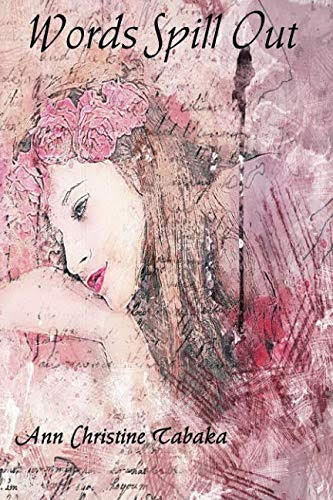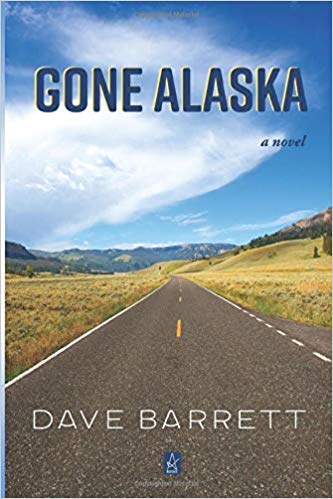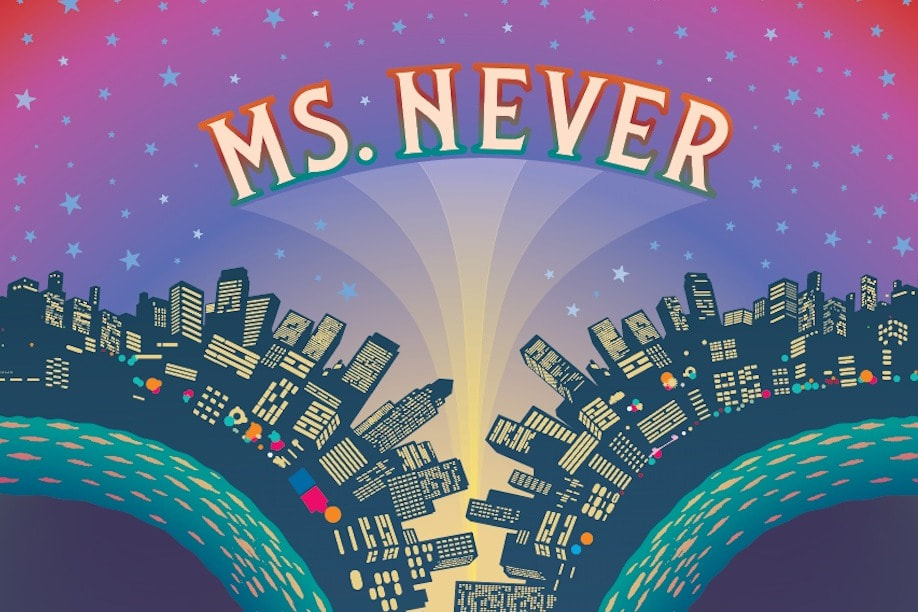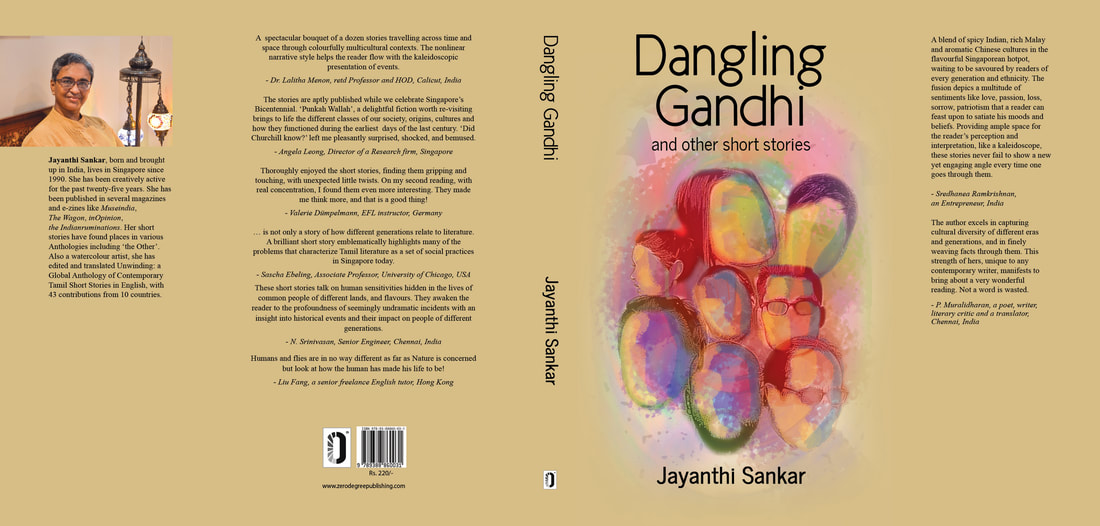|
Dear Readers and Authors,
I know you have been waiting for a while to see the new April issue of Scarlet Leaf Review. Well, due to some unforeseen matters, which I will not develop here, the issue is not ready, and I apologize. However, by the beginning of next week, you will have both April and May issues online, and I hope that will somehow help. I am sorry for your disappointment, especially during this period, but it was impossible to do the work. Please, be just a little more patient. I am pretty sure it will be worth it. Have a good week and take care! Editor in Chief, Roxana Nastase
0 Comments
Hello Dear Authors,
If you notice that your poems or stories are missing, please, just contact me. It seems that some names were not registered under Categories. I have already found four missing categories. Thank you for letting me know. Kind regards, Roxana Dear Readers and Writers,
The official March issue of 2020 has just come out. With delay but.... I suppose you're already used to that. Something seems to happen all the time. Let me repeat once more that you might see only your name and bio, but not the story, for instance. Sometimes Weebly doesn't show some of the text. You only need to let me know so that I could republish the post. Nevertheless, if you decide to withdraw your piece because of that, which happened in the past, no hard feelings. As always, we haven't received publication permission from the author, so we couldn't publish them because of the law. Anyway, dear readers, I invite you to read these awesome pieces, written by some very gifted authors. With lockdown in force almost everywhere in the world, reading these awesome poems and stories might help you forget about what is going on around. Have fun! Don't forget that you can click on the name of an author under categories to read a specific piece. Enjoy! Roxana Nastase Editor In Chief Dear Readers and Writers,
The official February issue of 2020 has just come out, and short-stories are the leading feature with 37 authors. The review features only 11 non-fiction stories and 20 poets. Although shorter than the January issue, it took longer to format, as some pieces required a lot of work, even over an hour. Let me repeat once more that you might see only your name and bio, but not the story, for instance. Sometimes Weebly doesn't show some of the text, and you need to let me know so that I could republish the post. Nevertheless, if you decide to withdraw your piece, no hard feelings. As always, there have been pieces for which I didn't receive an acceptance e-mail. We cannot publish them. It is the law! Anyway, dear readers, I invite you to read these awesome pieces, written by some very gifted authors. Have fun! Don't forget that you can click on the name of an author under categories to read a specific piece. Enjoy! Roxana Nastase Editor In Chief Dear Readers and Writers,
The official January issue of 2020 has just come out, and it is immense. It features 43 posts of poetry, 63 posts of short stories, and 16 posts of non-fiction. That is why I needed longer than usual to format it. If you see only your name and bio, but you don't see your story, for instance, please, don't get angry, and don't panic. Sometimes Weebly doesn't show some of the text, and you only need to let me know. I will have to republish the post, and everything will be in order. Of course, if you decide to withdraw your piece, as it happened in the past, I understand. Some authors sent a PDF. They might see that their post doesn't look the way they wanted. Please, remember the guidelines. You need to send a word doc or to paste the text in the body of the email. I had to re-write several pieces, and I might not have noticed some things. I even worked for an hour for some posts, which means a lot, considering how many posts there were. However, I am sure that this issue will be a great read, and I invite you to read everything. You won't be sorry. Don't forget to look under categories for the author's name and click on it. You will get to their post and then enjoy it. You can find the articles under page 2020, January, and the scroll-down menu shows poems, short stories, and nonfiction. Editor in Chief, Roxana Nastase 1. The review will continue - even though it is not easy to keep up with everything, I have got really attached to it.
2. Right now, the ANNIVERSARY issue is live. Last years, we published one issue on January 16, and then, one piece every day. Now, I will publish a few pieces a day, although there might be days when nothing is published. I am sorry, but sometimes, I don't really have the time to publish anything. 3. I apologize for replying with delay to emails, but there are so many that I can't keep up. However, be assured, everyone will have a reply. 4. I have lots of request for reviews for books. From now on, because I can't read so many books (you know, full time job, family, my own writing, magazine, my own reading etc), I will review only certain books, after checking them on Amazon (or wherever the book is published). I will let you know if I want to do it. The reviews will be $ 25 (the price doesn't guarantee a favorable review, of course; however, I can guarantee that the review will be placed on Amazon (or the respective online shop), on Scarlet Leaf Review (I will create a special page for reviews) and on my blog, if you WANT IT. I will send you the review beforehand so that you could decide if you want it published. Of course, you would pay only if I accept to review the book. 5. Bad news - Treasure Chest turned out being a flop. Not even one person was interested in acquiring a copy. I feel bad for the authors who hoped more from it. Therefore, it will be discontinued. 6. Next print issue will appear at the end of January, beginning of February. Dear Readers and Writers, The last issue of 2019 has just come out. It has been different than before, I know. Weebly has decided to post every single post, although the review wasn't ready yet. Eh, it happens. It might have raised a few brows, but what is important it's that the review is live. It's been a very long December and beginning of January for me - a lot of overtime and only a couple of days off. I couldn't have posted it sooner. I know that you have a lot of excellent articles to read, and I invite you to do so. Don't forget to look under categories for the name of an author and click on it. You will get to their post and enjoy it. All articles are under December, and the scroll-down menu shows poems, short stories, and nonfiction. However, before doing that, enjoy one of our poet's greeting for the just-passed holiday and the New Year that has just begun. SPECIAL TIME OF YEARIt’s that special time of year To return home and be very near To make amends and make all regrets disappear Waiting for loved ones to finally appear To be with those that are so dear So raise your glasses and let out a cheer Signing Christmas Carols for all to hear Waiting for the ball to drop and a New Year to Premiere To be with those you love and shed a tear To forgive and forget and let gladness reappear To resolve the past and start a new year TO ONE AND ALL MERRY CHRISTMAS AND A HAPPY NEW YEAR BobbyZ aka The JYD HAPPY NEW YEAR |
| Ann Christine Tabaka was nominated for the 2017 Pushcart Prize in Poetry, has been internationally published, and won poetry awards from numerous publications. She is the author of 9 poetry books. Christine lives in Delaware, USA. She loves gardening and cooking. Chris lives with her husband and two cats. Her most recent credits are: Burningword Literary Journal; The Write Connection; Ethos Literary Journal, North of Oxford, Pomona Valley Review, Page & Spine, West Texas Literary Review, The Hungry Chimera, Sheila-Na-Gig, Pangolin Review, Foliate Oak Review, Better Than Starbucks!, The Write Launch, The Stray Branch, The McKinley Review, Fourth & Sycamore. *(a complete list of publications is available upon request) |
GONE ALASKA: A NOVEL BY DAVE BARRETT
EXCERPT PUBLISHED IN SCARLET LEAF REVIEW IN 2016
Chapter Eleven of “Gone Alaska”
Exchange at Sea
“Out of that bunk and up on deck! That’s it! By God . . . look at him, boys. The Wonder kid from Roxie’s Whorehouse! Out the night before to make it with all whorehouse employees and kick ass on every rebel-rouser and sorry son of a bitch in Pelican, U.S.A.! That’s him all right. Rested now and just a-raring to go at them lines out back!”
“All right! All right!” I protested when Swanson started to physically pull me off the bed board. “I’m getting up—damn it!”
I swung my legs over the edge of the bed board. Thus, semi-seated, with my sleeping bag still wrapped around my legs, I was at least allowed to hold my head in my hands and wonder.
“What time is it? Where are we?”
There was enough light in the hull that I guessed it was somewhere around nine in the morning. I could tell by the familiar see-sawing action of the floor that we were at sea, but this see-sawing was more marked than usual.
Swanson had thrown together a pot of coffee and was lighting the stove’s pilot.
“You slept through half the morning,” Swanson said, extinguishing the match just before its flame reached his fingertips. Only Swanson had mastered the technique of lighting our damper less stove with a single match stick. “After the Rapp brothers brought you down from Roxie’s I let you sleep the rest of the way out.”
I shook my head carefully. I remembered something about being carried back to the boat from the whorehouse and how Helen had dropped a vase over my head. Palming the top of my skull, I felt a bump the size of large walnut.
“Thanks. . .” I said. Then, checking myself for other bruises, added: “Where are we? How come we aren’t in Pelican?”
Swanson explained that the Alaska Board of Fisheries out of Anchorage had posted an EMERGENCY THREE DAY CLOSURE coming up in three days. The bad thing about this was the dates of this closure coincided with the peak of the King Salmon Run. Each year, a day either way of a fixed calendar date, the greatest number of migrating King salmon flooded these inlet waters on way to their natal streams. The money made during these three days often determined a good season from a bad one. It was Swanson’s opinion that the regulators had chosen to announce this closure date at the last minute to catch fishermen off guard.
This is why we’d put-out from Pelican last night for Esther Island. Esther Island was a misnomer: a kind of underwater reef that formed a shallow expanse of water salmon liked to travel over as they come off the open ocean. It was at the northern head of Chicagof Island, midway between Cross Sound and the Pacific Ocean. It was here Swanson believed we might “head-off” some of these salmon before they poured into the inlet waters from the open sea.
I remembered the conversation I’d had with Sue Ann Bonnet about decreasing fish counts and over fishing, but decided it was probably not a good idea to bring this up right now (particularly in wake of the trouble I’d caused the night before!).
“And that’s where we are right now?” I said, my aching head beginning to throb.
“You got it!” said Swanson. Then, pouring himself a fresh cup of coffee, finished:
“I’d best get back the wheel. We’re near a good-sized wash-rock ‘bout now. Feel free to mug up . . . splash your face . . . and what-have-you. But don’t be pussy-footing around. A little something’s come up and I’m in need of your services above.”
And like a bee ordered back to its hive, Swanson turned and disappeared up the 5-step ladder.
Dashing, tripping, stumbling, falling, crawling across the floor of the hull, I made it just in time to vomit into an empty herring bucket across the room. Like a dog over its dish, I held my face over the salt-rimmed bucket and continued to wretch. My skull squeezed down on my brain each time a new heave came up. In midst of this came a weird urge to pray. But to what God or image I could not think! Perhaps for the first time since I’d been out here I realized just how removed from the rest of the world I really was. No one, not even Brian Connelly back in Juneau, really knew where I was at this moment. I’d made reference in a post card that I was fishing: but as to exactly where and with whom I was fishing, nothing. As far as he or anyone else was concerned, I could be anywhere along the Alaskan coast from Ketchikan to the Bering Sea! Overwhelmed by the thought, I clawed the hardwood floor as a new wave of nausea rose up inside me.
Finally, there was an end to it—or, at least, a great slowing down. The spinning slowed. The hot flashes cooled. Slowly, very slowly, I stood up.
“Christ. . .” I thought out loud. “What have I gotten myself into?”
From above came the rattling interruption of Swanson’s voice:
“Haul ass, down there! I need you on the bow-point! Pronto!”
“Screw yourself!” I cursed beneath my breath, knowing Swanson couldn’t hear because of the engine.
Because the swells outside were getting worse, I opted to sit on the floor while getting dressed—one sock, one foot at a time.
“Right on time!” was the first thing Swanson said when I appeared on deck.
I’d found the wheelhouse deserted, and came upon Swanson taking a leak over leeward side.
The light outside and the sound of the Western’s engine was brighter and louder than I’d even expected. The waters around us were bluer, wider than usual; choppier too. The boat was tacking hard right, as though caught in some strange whirlpool of a current. Not more than a hundred yards to the left of our wake, a capsized rowboat bobbed in a strange circular fashion on the water: like the dial on a broken compass.
“On time for what?” I said, looking away as Swanson adjusted himself in front of me.
Swanson pointed directly over my shoulder.
Turning to see, I saw nothing: just the wide open swells rolling by, a few seagulls cartwheeling overhead. Shrugging my shoulders, I indicated that I didn’t understand.
“No,” Swanson said, once again pointing over my shoulder. “Up along the prow. Over the roof of the wheelhouse.”
Still shaking my head, I stepped back a little and the object Swanson had so ardently been alluding to came into full and sudden view.
“H-o-l-y shit!” was the only thing I could think to say. “H-o-l-y fucking shit!”
No less than twenty feet off our prow, another trawler, the Lacey J, was running alongside us. Two men in stocking caps on the Lacey J’s deck were waving good- naturedly at us. With a shudder, I noticed that no one was at the wheel of the Lacey J. And there was no one at our wheel either! Had this positioning taken place in a quiet harbor or cove, I’d think little of it. But here—on a flooding sea, in some of the roughest water I’d encountered yet—the closeness of the other vessel was terrifying.
“Look at those crack-heads!” I said, turning my torso towards Swanson but unable to turn my eyes from the Lacey J in irrational fear that doing so might cause our two trawlers to collide. “What are they up to? They must be twelve-miles high!”
Braving a glance in Swanson’s direction, I discovered I’d been talking to a steel pipe.
“SWANSON!”
The wheelhouse! I thought. Of course! Swanson had gone there to steer us clear of these two fools and their trawler!
But entering the wheelhouse, I found it as vacant as when I’d first come up. The steering wheel was locked in auto-pilot: turning a quarter turn to the right, thumping to a stop, bouncing back to the left, and then repeating the process.
Rushing back outside, I searched fore and aft for my skipper. After stumbling over a tool-box and saving myself from toppling overboard by grabbing a steel cable, a horrid thought entered my brain. Maybe Swanson had fallen overboard. The way the boat was rocking and wind was blowing it wouldn’t take much to toss anyone, even an old salt like Swanson. Swayed by this notion, I scrambled about on deck in renewed hysteria.
Not until I’d literally tripped over Swanson did I uncover the secret of his whereabouts.
“Hey! Aaaaah! Get off--!”
While searching out to sea for Swanson’s floating carcass, I’d inadvertently stepped on his outstretched hands just as he was climbing up from the holds below deck.
A strong swell rocked the Western World’s stern, forcing Swanson to grasp my leg as he crawled up out of the hatchway. I grabbed his elbow and lifted him to his feet.
“Thanks. . .” Swanson grumbled, then quickly added:
“Here. Take this. Like this!”
Swanson shoved a half-frozen salmon into my arms.
Shocked, I simply stared at the fish.
Swanson grabbed my stiff hands and twisted them about until I was holding the fish properly through their gills.
“That’s better,” he said. “It’s a fish. Not a goddamn infant!”
The Lacey J’s position had slid back so it was riding left to our stern. Only one of the crewmen was on deck now, the other manning the wheel.
“Yo! Swanson!” the stocking-capped man at the rear of the Lacey J called across the white-capped waters. “We ain’t got all morning.”
Swanson shrugged his shoulders and nodded towards me.
“Yeah, well. . .” the other fisherman answered. “We still ain’t got all day.”
Swanson gave a big thumb’s up sign to his fellow fisherman. Under his breath, he mumbled to me:
“What a doofus! Word is his pretty young wife is banging some cannery hand while he’s out here busting his balls!”
I noticed the stocking-capped fisherman was no longer smiling and was leaning over the side of the Lacey J as if to hear what Swanson was saying.
“Come on,” Swanson said, nudging me forward. “You heard the man. We need your services on the bow. Pronto!”
“The bow?” I asked. “In these waters? How come?”
We were at the door of the wheelhouse now. Inside, scattered electric messages sounded on and off over the CB radio. Through the water-sprayed window of the wheelhouse, I saw that we were within a few hundred yards of that strange area where the tidewaters of Cross Sound met up with the tidewaters of the Pacific Ocean—where the GREEN gives way to the BLUE—the waters between them foaming into a roaring silvery line of froth that stretched as far as the eye could see.
“Just a little chore,” Swanson answered, in his most matter-of-fact voice. He appeared busy re-tying a knot on a rope attached to the crosstrees overhead. “It’s very simple, really. All you got to do is take that there soaker up to the bow-point, and hop over to the Lacey J with it. Then either Joey or Gabriel, there, will swap you a little something for the fish. You jump back aboard with the something. Simple as that.”
Giving the knot a good tug, Swanson slipped past me into the wheelhouse.
Pot. That was the little something Swanson was asking me to risk my neck over. We’d run out of it the day before Pelican and Swanson had just about lost it. When I entered the wheelhouse during a lull, Jimi Hendrix was playing at full volume and Swanson was scratching the bottom of his pipe with a straightened paper clip for resin. Boxes and papers and magazines were strewn about the wheelhouse; the Pin-Up calendar was torn from the wall; and his coffee cup shattered on the floor. Thankful he hadn’t noticed my presence, I’d tip-toed back to my lines and hadn’t thought about the episode again until just now.
“You’re joking,” I said, following Swanson into the wheelhouse. “Really. This is a joke, right?”
Now Swanson was busy grinding the Western World’s gears into neutral, then reverse, then forward into low. I had to brace myself by pressing my free hand against the ceiling. Raising the fish to eye level, I continued:
“For a stash of pot you want me to jump boat—“
“Get it out! Get it out!” Swanson started shouting. “Get it out of my face!”
I stood there with a confounded look on my face.
“The fish!” Swanson said. “Get that goddamn fish out of my face! I’m trying to steer the boat, goddamn it!”
Bewildered, I jerked the salmon away from Swanson’s face. At that instant, a great groan came up through the floorboards as the Western World lurched into higher gear. That same instant, I toppled headfirst into the dashboard, dropping the salmon onto the floor of the wheelhouse along with pen and pencils and other miscellany from the dash.
Stumbling to my feet again with the salmon, a clip-board, three pencils and a coffee coaster, I apologized for dropping the fish.
“Sorry. I just don’t see why we can’t—“
“Because I said so!” Swanson interrupted. “This is my boat. If you don’t like it . . . pick up your gear and go. Right now. Just pick it up and go. The day I start letting a puller tell me what to do—“
“I ain’t telling you what to do!” I interrupted, raising me voice at Swanson for the first time. “Just let me know why we can’t throw the bloody fish across instead of me risking my neck jumping!”
Both of us were surprised by my sudden outburst. There was an awkward silence for several seconds as we looked at and away from each other at the same time. Finally, Swanson spoke:
“We ain’t throwing it across, goddamn it, because it’s too damn easy to lose that way.”
The Lacey J was pulling up alongside our prow again. Through the wheelhouse window, I saw the man on deck had moved up to the Lacey J’s bow-point. He was crouched there on a knee, pointing at his wristwatch.
“All right,” I heard myself saying.
Without another word between us, I took my rain slicker down from its nail on the wall and left the wheelhouse, thinking, the man is relentless.
Walking up that bow-point was about as easy as walking up the curve of a banana. The gales went unchecked here: strong enough to knock over a small child; and, quite possibly, a full grown man trying to balance a hangover; a twenty-pound fish, and a dozen other thoughts completely unrelated to the task he was performing—the most recurrent of these being that if he had any sense at all he’d up and quit on the spot; have Swanson deliver his own goddamn fish; fetch his own pot; etc., etc.
“How goes it?” came a voice over the wind and blasts of water against the Western World’s flank.
It was the fisherman crouched on the bow of the Lacey J; the one Swanson had referred to as Gabriel. He had a large red face that matched his stocking cap. I guessed it was a face made red as much from drink as from the elements; a sad but generous face. Overtop of a long-sleeved thermal shirt, Gabriel wore a black T-shirt with some faded lettering across the chest.
ANYONE CAN BE A FATHER. . .
BUT IT TAKES SOMEONE SPECIAL
TO BE A DADDY!
I wondered if Gabriel’s wife had gotten him the shirt before or after she’d started fooling around on him.
I was past the anchor windlass now. From here out, I was on my own. There were no ropes or cables to hold onto now, no wheelhouse to fall back on: just the sky above, the sea below, and this terrible oblivion tottering all around me.
“Great!” I called back, fearing another spoken work might send me over.
“Just go easy!” Gabriel encouraged. “This is nuts—but, if you take your time, it’ll be all right!”
I found myself glancing out at the water too much. It was fine when my sights were set on the course of the water, but when I redirected my sights to the course I was taking along the bow I discovered that the very boards I stood on tended to run out beneath me also.
“Hey, kid! Slow it down. And keep low!”
Gabriel again. I glanced up long enough to see that he was acting out what he meant by “keep low”: squatting up and down like an overgrown baboon.
“Got it! Keep low,” I heard myself repeating. “Keep low.” I reprimanded myself for thinking Gabriel looked comical. This advice just might save my life.
Aping Gabriel, I inched my way along that mile-long last five feet to the end of the bow-point. . .thinking, and, at the same time, trying not think, about those war horror stories regarding soldiers who crap their pants in the line of fire. I’d always laughed right along with my schoolmates at the thought. I wasn’t laughing now.
“Holy Christ. . .” I whispered, when I’d made it to that edge.
I took a knee and waved at Gabriel.
“What the hell are we doing here?” I braved across the wave and foam.
But Gabriel didn’t seem to hear me even though we were only fifteen feet away: fifteen feet, that is, at a given moment. It all depended on the rise and fall our two bows. Our trawlers were rising and falling on the beginning of open ocean troughs. At one moment, you’d become elevated on a mound of water; then, the next moment, this mound would cave in and you’d find yourself at the bottom of a watery bowl, with nothing to see around you but climbing walls of water.
“Stay down!”
Gabriel was instructing me to remain crouched while Swanson edged our prow closer to the Lacey J. Soon, our bows were see-sawing about ten feet apart. Gabriel stood up and moved to the edge of his trawler’s bow. He signaled me to remain crouched while the trawler’s inched closer.
It wouldn’t be long now. My breathing quickened to match my heart. My mouth and throat were dry and I wished I drank more water after vomiting in the hull. Our bows were rising and falling opposite each other now. When one came up, the other came down. It made me shudder to think what would happen if I should somehow wind up in that no-man’s land of water between the two heaving bows. For a second, I imagined my body floating face down in dead man fashion between the boats . . . my green rain slicker puffed up with air. Then, the next second, one of the two hulls would come smashing down on top of me—busting my skull open like watermelon; my body repeatedly throttled by the hulls of the two trawlers until I was, inadvertently, pushed aside. Then Swanson, or the men aboard the Lacey J, would drag my carcass out of ocean with a long-handled gaff.
“Hey! Heads up! If you’re gonna jump—now’s the time!”
Shakily, I stood up, holding onto the anchor until I was sure of my balance.
“You all right?” Gabriel asked. He was within eight feet of me now. “Want to call this damn thing off?”
“No,” I said, forcing a smile. “I got it.”
The boats were dangerously close now. Not only did I fear making the jump, but now had the additional worry that our two prows might collide.
I toed my way to very edge of the bow. I switched the salmon into my other hand to assure a better grip. Then, carefully timing my jump midway between the rise and fall of our two bows, I leaped across to the Lacey J.
Gabriel was there to greet me as I landed on the bow of the Lacey J. In my zeal to make it across, I’d jumped a little too far. If Gabriel hadn’t been there to catch me, I might have continued right on over the other side of the Lacey J.
“Guess I overdid it a little,” I joked.
“I’d say!” said Gabriel. “Had me thinking you were Michael Jordan a second there!”
We laughed at the slapstick notion of me going into the drink on the other side.
A couple of seagulls were circling overhead. Pointing toward the gulls, I said:
“Maybe they were waiting for me?”
“Yeah!” Gabriel laughed. “Right!”
A fresh gale blew across the bow the Lacey J. Both of us were relieved when it let up.
I turned the nearly-thawed salmon over to Gabriel.
He handed me a half-ounce of weed in a Ziploc sandwich bag, and, in a second sandwich bag, a fistful of twenty dollar bills.
“What’s this for?” I asked.
Gabriel’s face flushed.
“You’ll have to ask your skipper about that?”
Apparently, the stash of pot was not the only reason Swanson had sent me here.
Gabriel turned—as though to leave—then turned back—offering me his hand.
“What’s your name, kid?”
“Adam,” I said.
“Adam, huh?” Gabriel said, scratching the back of one of his big red ears. “Well . . . good luck, Adam. You’re doing something I could never do.”
Gabriel glanced uneasily towards Swanson.
“Worked a whole summer with that son of a bitch ten years ago. Wouldn’t do it again for all the tea in China.”
Then, raising the salmon as though to give reason for his hurry, Gabriel walked back to the Lacey J’s wheelhouse.
I looked towards Joey at the wheel. Joey was pointing emphatically past me towards the bow-point. The reason for his urgency was apparent at a glance: our trawlers were pulling apart. Already there was a good eight feet of space between them.
Shoving the two stashes in the front pockets of my jeans, I hurried to the edge of the Lacey J. I leapt back aboard our boat while the Western World’s bow was still coming up. I landed somewhat successfully—falling hard on my knees beside the anchor.
I returned Swanson’s thumbs up from the wheel, then remained crouched on the bow as our two trawlers pulled apart. I saw Gabriel emerge on deck again for an instant, then disappear inside the Lacey J’s wheelhouse.
Who was this Gabriel?
What else could he tell me about Swanson?
Or—better stated—what could he tell me about him that I didn’t already know?
When the other fisherman on the Lacey J, Joey, waved goodbye from the wheel . . . I did not wave back.
| Colin Dodds is the author of Another Broken Wizard, WINDFALL and The Last Bad Job, which Norman Mailer touted as showing “something that very few writers have; a species of inner talent that owes very little to other people.” His writing has appeared in more than two hundred publications, and been nominated for the Pushcart Prize and the Best of the Net Anthology. Poet and songwriter David Berman (Silver Jews, Actual Air) said of Dodds’ work: “These are very good poems. For moments I could even feel the old feelings when I read them.” Colin’s book-length poem That Happy Captive was a finalist for the Trio House Press Louise Bogan Award as well as the 42 Miles Press Poetry Award in 2015. And his screenplay, Refreshment, was named a semi-finalist in the 2010 American Zoetrope Contest. Colin lives in Brooklyn, New York, with his wife and daughter. See more of his work at thecolindodds.com. |
Farya Navurian seems like an ordinary young woman trying to get ahead in the city while struggling with depression. But her depression is anything but ordinary - it has the power to destroy time and space. Growing up the moody daughter of a space-faring hero of The Greater Anointed Imperial Ohioan Commonwealth, Farya annihilated most of that world and its history, leaving behind the husk-like Buckeye State.
One day at a record swap, she meets Bryan, a divorced telecom CEO. More than record collecting, what they share is that they each carry a howling secret. Bryan’s business is a cover for a bigger operation that buys human souls and sells luxury afterlives using shady terms of service in mobile-phone contracts.
The two of them fall in love, and as they start a life together, their secrets back them into a corner where they have to come clean - and take drastic steps - to save themselves, and possibly reality itself.
CAROL SMALLWOOD INTERVIEWS NEW YORKER COLIN DODDS
by Colin Dodds
470 Pages, 5”X8”
Paperback $18.18
Also available as an ebook and an audiobook
Science Fiction, Literary Fiction
Publication Date: November 1, 2019
ISBN: 978-1690788140
Contact: [email protected]
More info at: thecolindodds.com
https://www.amazon.com/dp/B07WNRNF8P?ref_=pe_3052080_276849420
https://www.gofundme.com/f/ms-never
Smallwood: What is your literary background, education?
When I grew up in Central Massachusetts, it was a place with a great emphasis on, and reverence for, literature. A lot of writers and comedians were kids in Massachusetts in the 1980s - disproportionate amount among just the people I knew growing up. It didn’t seem all that special at the time. But maybe it was. Massachusetts had a strong mix of the prigs and the hippies and they all agreed that whatever mattered, it was invisible. The whole world seems to have run screaming from that variety of inquiry and appreciation. Seems, anyway. Maybe that’s me being middle aged, or maybe that’s living in this particular iteration of New York. But the invisible important things are still there. Just try and prove me wrong.
Anyway, I did the bulk of my grammar and high school education at Catholic institutions, which made me even more sensitive to metaphysics, as well as its bullying tactics where the ethereal rubber hit the road of our minds. From there, I fled to college in Southern California, where all of those dynamics - and the accompanying humor - simply didn’t exist. I barely lasted the school year, then moved to New York, where I finished my education at the New School.
College in New York wasn’t a paradise, but I had the freedom to make my mistakes in a rotating cast of 8 million strangers. I got roughly what I deserved, and a degree to boot. The school, then The New School for Social Research, but The New School University the year after I graduated, had no campus to speak of. It was more of a placeholder, and I could take classes at Cooper Union and even NYU. It was good. I learned as much from the bad jobs, bartenders and strange folks in the East Village as I did from the classes. When I started there, I doubted I’d find anywhere I belonged. And by the end of school, I still hadn’t. But I left with the belief that I could.
Smallwood: How did you ever manage to write your latest novel, Ms. Never, from the female viewpoint?
The main character in Ms. Never, Farya Navurian, is prone to fits of depression that culminate in what she calls “seizures,” which annihilate enormous swaths of reality.
The depression that brings on the seizure are, like any depression, somewhat manageable. The problem with depression, however, is that you need the wherewithal to do what you need to do to manage it - exercise, meditate, eat better, get out of the house and do something you enjoy, reach out to friends to talk. But, alas, depression robs you of that wherewithal. Depression has a way of making itself unmanageable.
For anyone who is close to depressed people, this makes sympathy complicated and difficult. It seems like the depressed person is making up their own problems, or are childishly refusing to take obvious steps toward caring for themselves.
Now, add in an element of depression which destroys physical reality to the point where millions of people alive now have never been born, dozens of millennia never happened and hundreds of cities were never built. Then sympathy for the depressed person becomes almost impossible.
This impossibility of sympathy is something that Farya grapples with throughout the book.
Farya the destroyer of worlds had to be a woman to be remotely sympathetic.
I think that, even with the recent changes to what we all say and expect from the genders, that there are still some aspects of our common humanity that we find especially distasteful in men. That we are only nominally in control of how we feel, and only slightly more in command of our actions, is a fact that’s especially hard to accept in a male protagonist.
And writing someone other than yourself is what fiction is all about.
Smallwood: In what genre did you first begin writing—that is, nonfiction, poetry, or fiction and how old were you?
I remember writing a story about a Godzilla-like dragon when I was seven. I really enjoyed that. Then I started again in high school, with some gory horror. Poems and more surreal fiction started sophomore year. Then it was off to the races.
I wrote poems and short stories throughout high school and into college, where I wrote a few plays. Since then, I’ve written screenplays, novels, advertisements, and a whole lot of stuff that certainly wouldn’t burnish my dim reputation. But I’ve always written.
Smallwood: How has living in different places influenced your writing?
I’ve lived almost my entire adult life in New York City, after a short and turbulent period of traveling. When I do get out of town on vacation or for work, it’s always refreshing, always dilates the senses. There aren’t just a lot of places to live, but many ways to live. That’s always a tonic to remember.
Living in different places hasn’t influenced my writing so much as it’s influenced me. Living in Massachusetts shaped my character on a basic level, made me willful and fairly earnest. Living in California cured me of wanting to live in California. Living in New York taught me the essentially mercantile values of being adaptable and clever, keeping possibilities open, and not taking failure or rejection very seriously.
Smallwood: How has having positions beyond writing helped you as a writer?
Of course, those jobs have helped me survive. But beyond that, they’ve exposed me to different kinds of people, to the dynamics that shape the world I live in, and allowed me to travel. Maybe the most valuable things those jobs have done is to force me to learn about things I wouldn’t have learned about otherwise, like business, finance, the law, government, public-relations and marketing.
In college, I studied mysticism, literature, art and history. And I might have been content to mentally live in those worlds, if the threat of starvation and disgrace hadn’t driven me into the offices where I’ve spent so much of my adulthood. To be fair, I still argue privately about whether or not to be bitter. But for better or worse, being taken from that for eight to ten hours at a time to go to work has been deeply informative of my writing.
In some ways, I think that’s made me a better writer. It’s not uncommon to read or watch something and ask about the main characters “but how do they make a living?” It’s a real weak spot for a lot of writers who have only ever worked as writers - they have no idea how anyone makes a living, or how those occupations shape and distort almost everyone’s personality in 21st century America, where most of what we do with our waking hours is work.
Smallwood: Please tell readers about your poetry collection published by Main Street Rag Publishing Company:
Spokes of an Uneven Wheel came out just about a year ago. It’s a collection that encompasses a wild few years of poetic work through the birth of my daughter. Main Street Rag had published my poems in their journal. And when they had an open reading period in ‘17, they accepted the collection not long after I sent it over.
Once it was published, the book was a good chance to go out and do readings, and to connect with old friends in the poetry world. It was also an opportunity to go out and get some nice reviews.
It’s a great book and everyone should buy a copy or at least read some of the poems in it, which they can for free here. To sum up the experience of having Spokes of an Uneven Wheel published, there was less than no money and little glory, but it got me back in touch with many kindred spirits.
Smallwood: What are some magazines in which you have appeared?
I’ve had poems, essays and short fiction appear in more than three hundred publications including Gothamist, Painted Bride Quarterly, and The Washington Post - but mostly in smaller journals.
Smallwood: How did you manage to also write screenplays, direct a film, and work as a video producer?
Videos, movies, poems, articles, infographics, podcasts, novels and essays - they’re all related by how they’re created. They all sink or swim the same questions: “What is the story?” “Why am I telling it?” “Is it believable?” “Is it new?” “Is it fun?” “Is it clear?”
Testing the material - whatever it is - along these lines is the first commonality. The second is the dogged willingness to find and create solutions when the material fails those tests.
The beauty is that neither of those two acts is something one can ever be quite good enough at - my words have forked no lightning. And that’s exciting. That excitement is the third thing they all have in common. I enjoy them all.
Smallwood: I can see that being a journalist, editor, and copywriter would help a great deal in getting your work accepted. What are you working on now?
What I write and where I write for a living hasn’t really done much to get me into the kind of favor-trading ecosystem that would help me get published. That’s all dumb luck, and more or less relentless submitting of my work.
Aside from post-production on a short film, I am not working on a specific big project. I’m playing publicist, marketer, huckster, fundraiser, art director, social media manager, and public personality - as much as I can to get Ms. Never into the hands, eyes and minds of as many readers as I can. And I imagine that the successes and failures of this endeavor will inform what comes next.
Other than that, I’m filling notebooks and watching the brush for signs of large, wild movements.
More about Colin’s work at thecolindodds.com
Carol Smallwood is a literary reader, judge, and interviewer. A recent book is Patterns: Moments in Time (Word Poetry, 2019).
| Jayanthi Sankar, born and brought up in India, living in Singapore since 1990, has been creatively active from 1995. This is her first book of short stories collection – Dangling Gandhi. She has edited and translated the Global Anthology of 43 contemporary Tamil short stories 'Unwinding'-with contributions from 10 countries has been published in July 2019. She has been published in several magazines and ezines like the indianruminations, museindia, The Wagon, inOpinion. Her short stories have found places in various anthologies including 'the other'. She has been invited to participate in the panels of literary festivals such as (Asia Pacific Writers & Translators) APWT 2018 at Gold coast, Singapore Writers Festival, Seemanchal International Literary festival, Asean- India Pravasi Bharatiya Divas Writers Festival. Also a watercolour artist, she has been a freelancer for more than a decade and a half, with a three years of experience in journalism. [email protected] / [email protected] |
Author: Jayanthi Sankar
Genre: (Literary) fiction/short stories
Published by: Zero Degree publishing, Chennai, India
Year: 2019 / ISBN: 978-93-88860-03-12
Pages: 154
Price: Rs.220
Sredhanea Ramkrishnan in a dialogue with the Author Jayanthi Sankar
July 2019 – via email
(On Dangling Gandhi and other short stories)
Sredhanea Ramkrishnan: Let’s begin with the title, what do you intend to send across to the readers by this title?
Jayanthi Sankar: As you have already read the book, so you would know that in the title story Dangling Gandhi, is only a subtle metaphor. Although my favourite story of the collection is not this, I decided on this title for the book as it suits all kinds of uncertainties and doubts of our times, the world over, on Gandhism as well as the nonviolence he upheld, becoming more and more debatable in this modern world. However, the story hardly touches on these, interestingly.
Sredhanea Ramkrishnan: In that story, an older adult's love for his motherland is brought in by a jubilant flashback. Isn't it strange how attached our human minds are to our land and our past? And all that a soul needed before its departure was a whiff of reminiscence!?
Jayanthi Sankar: The story did just that – to capture the childhood memories of the departing soul amidst the interestingly woven present life and the voices of the next two generations. A gentle stroke of the zero brush of multicultural diversity helped add value to this particular painting of words.
Sredhanea Ramkrishnan: We are all well aware of the dreadful imperialism, but your stories paint a different shade of post-colonialism that none of us even imagined, don't you think it might offend or shock a patriotic mind?
Jayanthi Sankar: However dreadful a period may be, it will certainly have other sides to it. At least one angle other than what has always been projected to the future generations. When you say ‘none of us even imagined’ shows how we are all preconditioned to think other than what has been prescribed to us.
Haven’t we seen Schindler in the famous movie? Are we going to argue that that character is going to offend the Jews? Such a character or depiction creates debates, and that’s the sole purpose.
In the same way, my stories are not meant to offend anyone or deliberately crafted to paint a different shade but only to raise questions and to provide ample space for debates. They are, but many flashes and images of real-life gathered in my memory over decades since my childhood, from what I heard from seniors in the family, relatives, extended families, and friends. Readers are sure to feel my neutral tone as they are not biased in any way.
Sredhanea Ramkrishnan: As we all are slowly moving towards being global citizens, is patriotism even relevant anymore?
Jayanthi Sankar: Yes, patriotism is slowly losing its meaning in the modern world but, knowing the past and the period when patriotism in its truest sense existed and had its relevance becomes important to confront our modern day challenges. They may be of border issues, immigration, and terrorism of any kind. Values and issues do vary, but there is always a string of continuity.
Sredhanea Ramkrishnan: When we see the twelve short stories, the sequence seems to be chronological, almost from the 1850s till present date, but with a higher leaning towards the period of Independence of India. Why does the part seem to interest you the most?
Jayanthi Sankar: Well, it’s interesting to note that you have read them as one whole unit. I guess my interest in the Independence of India could have arisen from the life experiences seniors shared along the journey of my growing up years and the school days’ subject of Indian history. Nothing more than any of us would normally know.
Sredhanea Ramkrishnan: Tell us a bit about your journey and evolution as an author and a human being.
Jayanthi Sankar: Although I remember growing up as the eldest of the four children in the family, turning a second mother to the youngest when I was nine a lot of internal debates and thought processes had happened with less than optimum reading, I’d say. I used to be always quiet and responding more in syllables than words, everything around me set me to think though I never used to express.
Having grown up in different states in India, naturally, I got exposed to different languages, people, and cultures. I never knew back then that I would write one day.
Later, when I came to Singapore as a young mother of my elder son, the libraries here fascinated me. My reading increased unimaginably. I used to read in English and Tamil. I started writing fiction in 1995 in both the languages and eventually decided to focus on one language at a time. And in the past 4 to 5 years, I have turned my focus to writing primarily in English.
The voracious reading shaped the human being that I am today with the writer being is only a byproduct. Reading continues to catalyst the evolution of both in me, also resulting in spiritual progress.
Sredhanea Ramkrishnan: I would like to know how you came up with the idea of making the floods the centric theme or the connecting factor between two differently timed yet profound sorrows and what effect you expect on a reader with a fleeting note about Winston Churchill in the story.
Jayanthi Sankar: ‘Did Churchill know?’ was written long before the recent devastating floods of Kerala. When I witnessed the images of the floods, I was intrigued, especially because I had lived through a similar one in my fiction during its creation.
This story carries two tiny canvases of the older man and Jack with a very vast and broader canvas of the tea estates that began during the colonial periods and how the devastating floods destroyed the hilly region.
I’d been to Munnar a few years back for four days on holiday with friends. The hill station with the surrounding ranges of hills captivated me just as the Winston Churchill bridge/arch did. I felt the arch stood there heavily carrying the remnants of the past. Ironically, Churchill detested India and Indians, and that makes us, the people of the later generations raise several questions.
The story comes under parallel storytelling. It was not planned. I discovered that the story fell into that category, only upon reflecting later on.
Sredhanea Ramkrishnan: Physical disability is often looked upon as a bane; for the first time, your second story depicts a hearing and speech impaired man as an asset rather than a liability. Did you want to bring out this point in particular or was it just an unintentional note?
Jayanthi Sankar: It is more complex than that in the story ‘Punkah Wallah.’ For Herman, Mani may be an asset. But when you read a little deeper, you will also feel that an act that appears to help many a time becomes the exploitation of the situation.
The protagonist of this short story represents the community of fan men. Colonial English of not only the subcontinent of India but also of Malaya used these men to do this job of fanning them. Those were the days before Electricity came widely to the eastern part of the world.
My dad used to have an elderly friend when I was in my mid-teens while we were in Shillong. He was a Sardar who used to share things about his ancestors, childhood, and partition. He said there were many of his relatives in the then British Indian army and many worked as fan men and that one such lad was taken away to far away Malaya. The memories of those interactions surfaced in me to craft this short story, one of my favorites.
Sredhanea Ramkrishnan: Do you mean to say animal-loving and animal eating/ killing pests and insects the complete contrasts and exclusive of each other?
Jayanthi Sankar: On the contrary, in ‘The peacock feather fan’ I depicted the interdependency of not just animals, insects and pests but also the humans. There is an inevitable, invisible chain similar to the food chain also at workplace, the institution of family and marriage and everywhere. And this chain also has prey that turns a predator or a predator turning to be a prey at some point of time, and that’s what the story intends to bring about.
Sredhanea Ramkrishnan: Subtle yet profound expression of the pain of betrayal of trust in ‘Mobile Dictionary’ which raises in the reader a question. Which betrayal do you think would have been more hurtful, by the family member or the dotted upon friend?
Jayanthi Sankar: The betrayal by the friend or mentee of the story in today’s world would not even be a betrayal at all. In those days, especially in the community that the protagonist belonged to such a betrayal meant heinous.
There are other nuances in the story like Ramasamy Iyer who could empathise the hunger of his beloved cow, could not even digest what his 20 years old sister needed and was after.
This story is typically character-driven. The protagonist is based on my paternal grandfather, who founded three primary and high schools in the Southernmost of the present state of Tamil Nadu, during the colonial period. An erudite who memorized the dictionary used to be revered by his English friends, I have been told. I have never met him. He died when my dad was hardly five years old.
Sredhanea Ramkrishnan: In love, life, and separation, the significance of sacrifice has been well talked about by all, but timing? Isn't that the most crucial of it all?
Jayanthi Sankar: We continue to learn in this school of life, don’t we? The timely favourable happenings bring us happiness and joy and a stronger belief in humanity and untimely unfavourable incidents just the opposite. Ironically, the whole unpredictability of life and the uncertainties make our lives. Those who realize this and embrace the truth to live with the flow find peace with life. In ‘The Pavilion’ the love and untimely separation in the past bring into this world the protagonist.
Sredhanea Ramkrishnan: Poverty vs. luxury well explained by a bus ride, a child's kindness and observance shine through, do you think as we grow into adults we lose sight of humanity or are we too selfish to observe the need of others?
Jayanthi Sankar: It’s more to do with the conditioning of the mind rather than the adulthood by itself. Those who grow into adulthood with some awareness that the conditioning is almost inevitable, escape this to some extent. Even those who are already adults and can unlearn are capable of shedding at least portions of the conditionings. In these, I believe, lies the selflessness and humanity. Though ‘Beyond Borders’ portrays a typical bus ride in Singapore, a simple story runs through in which I guess the unconditioned mind of the child has naturally come out well.
Sredhanea Ramkrishnan: Again, strength and talent despite a physical disability. What inspires you to highlight the good side of physical challenges?
Jayanthi Sankar: I didn’t think of highlighting the good side of physical challenge. I created the character Venu in ‘The Pavilion’ who lives his life normally like his peers despite his condition. It’s neither to glorify physical challenge nor to bring sympathy in the readers but to show perhaps his inner strength, more through the feel the reader gets rather than through words. And it used to be common those days to come across people affected by Polio.
Sredhanea Ramkrishnan: Allegory, the most difficult form of literature seems to be your forte. What made you prefer it over other styles like flash fiction or vignette? Do you think the readers would be able to find the essence of the story in the same thread as you wish them to?
Jayanthi Sankar: Normally, I play with the theme and characters in my mind before I start crafting. Therefore, I let the theme and content choose the form. That having said, I love all other forms, and I hope to try my hand at them as well.
Different readers can read these stories in different depths. Albeit the stories are in a simple language, I won’t deny that they are layered and require some effort to understand well enough. I’ve been blessed with readers like you who read in some places beyond my intent and also those who sought my guidance before reading the second time. There were also a couple of readers who said they were unable to go into them and I could understand.
Sredhanea Ramkrishnan: Suffering is the ones left behind, not the dead. Aren't we all in a way facing the consequences of our ancestor's actions? Good or bad?
Jayanthi Sankar: The dead leave behind both good and bad residues for us to endure, I suppose, just the way we will be when we leave.
‘Mother’ talks about the devastating fury of Earth turning upside down the lives of an entire lineage of an English family settled in Shillong.
Sredhanea Ramkrishnan: One can write about emotion in detail only if one had experienced it, loss by death or love and ways of overcoming the loss seem to be better depicted in your stories. Is there a reason behind this?
Jayanthi Sankar: This moment, when I read your question, I am thinking. And except my empathy, I have no reason that I can think of because, fortunately, loss by death or love and ways of overcoming the loss have not been my life. Those effective depictions in my stories, for me, reflect my empathy. I tend to live those lives while conceiving and crafting.
If a writer can write well about death only after he experiences it, is it even possible for us readers to have texts depicting death?
I believe empathy is capable of creating the emotion in any writer even if she had not experienced that particular emotion.
Sredhanea Ramkrishnan: As an author, how do you think writing this book helped you?
Jayanthi Sankar: Only ‘Read Singapore’ was written back in 2011. Writing the other 11 of the stories over four years was so far the best creative phase that I loved and enjoyed.
I am writing a novel in English right now, and Dangling Gandhi has become the creative personal record that I hope to break. And that generates so much of motivation and drive, although, I have to accept that there are times when the other end is also felt. These swings by themselves are so interesting to watch as I currently plan the novel chapters.
Sredhanea Ramkrishnan: Who do you think are your target audience?
Jayanthi Sankar: All readers who enjoy literary fiction, Literary critics, Academics, and the serious readers of the western world who are eager to know more about literature, culture, lands, and people of the east. I am very sure the simple language will help the readers enjoy these varied, layered, nonlinear narrations, and assimilate.
Sredhanea Ramkrishnan: Is feminism just supporting equal rights and liberating women, or is it much deeper than that? Maybe not judging anyone for their actions and respecting their journey?
Jayanthi Sankar: ‘My mother is feminist’ aims to tell that respecting others’ journey is just the basic. It tells us that a man though a son would still see his mother as a feminist if he searches for reasons to justify his action that he has mixed feelings about – undergoes an unexpected after-effect.
To me, feminism with all its various shades is deeper than those two. Constantly evolving as we human evolve, feminism too undergoes constant changes.
This story was included in the Anthology, ‘the Other’.
Sredhanea Ramkrishnan: Are love and pain co-dependant? What's your take on unrequited love? Do we hate the object of our love that left us or ourselves for having fallen for the wrong person?
Jayanthi Sankar: I think it’s both - the love turning into hatred for the one who left and also upon self for having fallen for the wrong person. Natasha in ‘Am I a jar?’ is hurt and confused for the same reasons. As far as my knowledge goes, Love mostly comes along with heartaches and naturally unrequited love would mean naturally tremendous pain.
Sredhanea Ramkrishnan: Life, love, loss, you've covered them all, is satire too latent in your words?
Jayanthi Sankar: I hope to search to discover, which I’ve already started.
Sredhanea Ramkrishnan: It's good to know where we come from and respect our culture but do you think we should branch out and flourish or still be grounded and attached to our roots?
Jayanthi Sankar: Knowing the roots can give the feeling of a groundedness wherever you may go. With the globe shrinking, it’s only natural that one branches out to explore and flourish as he takes his roots within him. Some are unable to part with their roots and land and therefore end up returning sooner. Momo in ‘The peasant girl’ is one such girl.
Sredhanea Ramkrishnan: Indian, Malay, and Chinese cultures beautifully intersperse in your words. Being an Indian descent settled in Singapore, tell us what impact the history of Indian, Chinese and Malay, and mythology and politics have on your writings.
Jayanthi Sankar: Comprising not just the local ethnic groups but also of the immigrants and the floating tourist population, Singapore is almost as diverse as London. Two hundred years old modern Singapore is comparatively young, though. Due to her geographical location, one of the earliest ports in the Asia Pacific, diversity has always been her specialty.
When one lives here for nearly three decades, it’s very natural that she gets exposed to diversity. It is not too unique when she happens to evolve as a writer, and she depicts that.
In my formative years, I was fortunate to have been exposed to a multicultural environment as my dad being a central government engineer used to be transferred all over the subcontinent. So I grew up in many states. Shillong was one such beautifully diverse place.
Sredhanea Ramkrishnan: Having read about, heard, and even being an immigrant, what do you think is the biggest shock an immigrant faces? Cultural, social, economic, or educational?
Jayanthi Sankar: I think it depends much on the immigrant’s exposure, childhood, upbringing, and other backgrounds. For instance, 30 years back when I migrated to Singapore, because of my exposure I could see the city as naturally diverse whereas many ladies came directly from their home town could not take the culture shock. They had lived all their lives in their village, or town, or city, or state.
Here, I am reminded of a friend’s friend, a guy from IIT Chennai, graduated, and had gone to the US. Decades back, not exposed to other cultures when the Information technology was not as advanced as it is now, he had a culture shock of seeing the cleavages of the American women and returned within months to his native place.
Sredhanea Ramkrishnan: If you'd written these stories maybe a few years ago, do you think they'd have shaped up the same way?
Jayanthi Sankar: My creative journey started in my late twenties, and so now, in my mid-fifties, my storytelling has evolved. I’m better exposed and experienced in forms and techniques, and therefore, I think these stories have come out at the right time for these themes that stayed in me for decades would not have shaped this well, if years ago.
Sredhanea Ramkrishnan: What recent/ past life experience of yours readied you to pen down these stories?
Jayanthi Sankar: Like I said earlier, my experience from enriched explorations in both reading and writing has brought me to this phase, and naturally. Most of these stories have always been churning deep in me all the time, only waiting to be created, I suppose. When the stories surfaced I could give them the needed shapes.
Title: Dangling Gandhi
Author: Jayanthi Sankar
Genre: (Literary) fiction/short stories
Published by: Zero Degree publishing
Year: 2019 / ISBN: 978-93-88860-03-12
Pages: 154
Price: Rs.220
The August 2019 issue of the Scarlet Leaf Review is live, and it is huge.
It took a lot of work so this editorial will be very short. I barely can think straight (if I do).
We have had 159,085 visits between August 7th and today. That means that we reached 4,361,332 hits since the beginning.
I have changed the structure because a lot of authors complained that they couldn’t find their works in Archives.
You will see 2019 right next to the Home page. If you hoover with your mouse over it, August will appear. Slide your mouse over August, and a drop-down menu will point to poems, short-stories, nonfiction and art.
From now on, all issues that appear in 2019 will be under 2019. It seems the review will continue for at least 6 more months.
I know I always say so, but you should take your time and read them all! They are worth the trouble.
Thank you again,
Roxana Nastase
Editor in Chief
The July 2019 issue of the Scarlet Leaf Review is live.
Finally!
I know you have been waiting for it and wondering when I would do it.
Well, I have just done it.
This issue features a lot of authors, and some of them with several pieces. I do hope that you will love it.
The review has seen a 66% increase in readership, which means it has had 349,576 visits between July 1st and today. That means that we reached 4,202,247 hits since the beginning. I can’t believe that we are over 4 million hits already.
I am very grateful that you have decided to publish with us. Without your constant collaboration, this review would have never grown so much.
Thank you, dear authors, and thank you, dear readers. This magazine belongs to you as much as to us.
By the way, in a few days, the Scarlet Leaf Bookshop will be live.
Well, it is even now, but we still have to run some more tests and add a few more books.
I will announce its opening on Facebook, Twitter, and the Home page of the review.
Don’t forget, if you move your mouse over July 2019, you find the drop-down menu, which shows poems, short stories, and nonfiction. If you want to read the work of a specific author, click on the author’s name, on the right hand of the page under categories.
I know I always say so, but you should take your time and read them all! They are worth the trouble.
Thank you again,
Roxana Nastase
Editor in Chief
The June 2019 issue of the Scarlet Leaf Review is live.
The good news is that I succeeded in publishing it one day earlier than I hoped.
The bad news is that while correcting the categories – because of course Weebly took care of messing them, I might have deleted a post, and I can’t find out which one. If any of the authors discover that their story is not there, please, write to me at once.
This issue features a lot of authors, and that is why I couldn’t finish before now. I am proud of it, although not very satisfied with the delay.
Unfortunately, authors seem to be a stubborn race, and they never follow the guidelines. I was thinking of repeating them here, but what’s the point?
The review had 210,588 between June 1st and July 1st. That means we reached 3,852,671 hits since the beginning…. I can’t believe it.
There are days when I feel like I couldn’t go on with the work on the review, but then I think of everything we have accomplished and all the hard work that has gone into it – authors’ work, I mean, and I cannot do anything but continue.
I am proud of this review, which has grown more and more, but mostly, I am proud of you, dear authors, because you brought such readership. I will never be able to thank all the visitors and readers of our literary review enough. It’s been three and a half interesting years, and it seems will continue to be so.
Don’t forget, if you move your mouse over June 2019, you find the drop-down menu, which shows poems, short stories, and nonfiction. If you want to read the work of a specific author, click on the author’s name, on the right hand of the page under categories.
I know I always say so, but you should take your time and read them all! They are worth the trouble.
Thank you again,
Roxana Nastase
Editor in Chief
The May issue of the Scarlet Leaf Review is live, and only one hour and a half later than it was scheduled. Considering our late history, this is a record.
Now, as I have already been working for over 18 hours, and I am so tired that I barely keep my eyes open, I will be very brief.
1. I won't complain about no replies to email and bios longer than the story, for instance. I have complained too much lately - and I am not talking only about the review. I don't like myself when I am complaining so... Let's just stop.
2. We had 132,649 hits during the last 30 days, which is quite good, I think. We have reached 3,642,083 hits per total, since the beginning. I am grateful to the authors who chose to publish with us and brought such readership.
3. If you see a huge photo, I apologize. Weebly likes to change things on me. You should see the categories, before I tackle them...
4. If I skipped the name of someone in the categories, I apologize again. Just let me know. I will fix it within 48 hours.
I don't think I wanted to say something more.
Ah, not to forget.
If you move your mouse over MAY, you find the drop-down menu, which shows poems, short stories, and nonfiction. If you want to read the work of a specific author, click on the author’s name, on the right hand of the page under categories.
However, you should take your time and read them all! You won’t be sorry.
Thank you again,
Roxana Nastase
Editor in Chief
The March-April issue of the Scarlet Leaf Review is finally live. I am pretty sure that at least some of you have been waiting for it.
However, I hope it will not disappoint. You will need a lot of time to read all the published works, but you should do it. You won’t regret it.
There are still authors that don’t reply to my emails, and unfortunately, those cannot be published. I also love it to receive biographies narrating the entire life of an author, while all I am asking for is a brief third-person bio. I am learning not to complain anymore.
For the last 60 days, we have had as much as 251697 hits, which mean 3,509434 hits since January 15th 2016. Not bad, I would say. .
As always, I am grateful to the authors who chose to publish with us and brought such readership.
Don’t forget, if you move your mouse over MAR-APR 2019, you find the drop-down menu: poems, short stories, and nonfiction. If you want to go to the work of a specific author, click on the author’s name, on the right hand of the page under categories.
You should take your time and read them all! You won’t be sorry.
Thank you again,
Roxana Nastase
Editor in Chief
The February issue of the Scarlet Leaf Review is live in spite of a stubborn flu, which has been very trying for the last few days.
This issue features fewer authors, and I hope that this fact will not be a disappointment. However, as the last few months tired me a lot, I chose not to feature too many at this time. Still, I am sure all the pieces present interest and will nicely make up for the small number of submissions accepted for February.
As mentioned before, there are quite a large number of authors who don’t answer to my emails, and that also had the unfortunate result of offering you a poorer issue than what Scarlet Leaf offered you in the past.
For the last 30 days, we have had as much as 137,604 hits, which raise the bar to 3,257,738 hits since the beginning.
I am grateful to the authors who chose to publish with us and brought such readership.
Don’t forget, if you move your mouse over FEB 2019, you find the drop-down menu, which shows poems, short stories, and nonfiction. If you want to read the work of a specific author, click on the author’s name, on the right hand of the page under categories.
You should take your time and read them all! You won’t be sorry.
Thank you again,
Roxana Nastase
Editor in Chief
The January 2019 issue of the Scarlet Leaf Review is live. It is later than it should have been, but I suppose you have already got used to that by now. With a full time job, family responsibilities, some health issues and a lot of tiredness, that is bound to happen.
I am pretty sure that I have already mentioned that authors represent a stubborn race. I still have to do detective work to find approval emails, and very few of them do read the submission guidelines. Well… one gets used to that in the end.
The review has had 166,870 hits between January 9th and now, so we have had 3,287,004 hits since the beginning….
I am very proud of this small literary review, and of course, I am proud of you, dear authors, because you bring the readership.
Don’t forget, if you move your mouse over Jan 2019, you find the drop-down menu, which shows poems, short stories, and nonfiction. If you want to read the work of a specific author, click on the author’s name, on the right hand of the page under categories.
You should take your time and read everything! All the works submitted are worth the trouble.
By the way, within a week, the print will be out as well (hopefully!!!)
Thank you again,
Roxana Nastase
Editor in Chief
Born at the end of the 19th century, Mihai Eminescu’s memory and words are still vivid in the 21st century, and I do not think that they will disappear soon.
A romantic, the poet colored a literary epoch and inflamed imaginations and romance bloomed with his rhymes.
Patriotism may be dormant now, but it still flickers at the tempo of his social and patriotic poems, which bring the sound of drums and marching armies before one’s eyes.
Stars have shone in the gaze of several generations, and their hearts have beaten in the tempo of Eminescu’s love verses.
The poet’s talent crosses epochs, and his poetry still remains meaningful for coming generations.
A poet, a philosopher, a romantic and a social commenter, Mihai Eminescu still remains the most accomplished Romanian poet, and at the same time, a valuable star of the universal literature.
In the poet’s memory, whose anniversary is today, let’s read one of his romantic poems:

(source of the bio: Wikipedia)
“no copyright infringement is intended for the photo”
Down Where The Lonely Poplars Grow
How often have I erred;
My steps that all the neighbours know
You only have not heard.
Towards your window lighted through
How oft my gaze has flown;
A world entire my secret knew
You only have not known.
A word, a murmur of reply
How often did I pray!
What matters then if I should die,
Enough to live that day;
To know one hour of tenderness,
One hour of lovers' night;
To hear you whisper's soft caress
One hour, then come what might!
Had you but granted me a glance
That was not filled with scorn,
Out of its shinning radiance
A new star has been born.
You would have lived through lives untold
Beyond the ends of time;
O deity with arms so cold,
O marble form sublime!
An idol of some pagan lore
As now no more is seen,
Come down to us from times yore,
From times that long have been.
My worship was of ages gone,
Sad eyes by faith beguiled,
Each generation handed on
From father unto child.
But now I very little care
To walk along that lane,
Nor heed the face I found so fair
Looks out for me in vain;
For you are like them today
In bearing and in guise,
And I but look on your display
With cold and lifeless eyes.
You should have known to value right
With wondering intent,
And lit your candle at night
To Love that God had sent.
Published in:
https://mypoeticside.com/show-classic-poem-9858

Aftermath
madness plays its hand.
Hate planted seeds sprout deep
in the confines of a fearful heart.
Born within love’s borders,
not stranger or refugee.
Seething words rip open
truth, exposing deceit.
BEHOLD, the prophesy!
BEHOLD, it lives again!
Words incite much suffering.
Tens of thousands must die.
So versed are you in the
ways of the callous.
A vulgar stain upon
the floor of creation.
Remembrance will scream
your name in anguish.
Betrayal now lies cold upon fallow
fields once sown with hope.
A storm of vast proportions
as you sweep across the land.
Damage beyond imagination
amasses before our eyes.
You wear your camouflage so well.
Disbelief turns to horror.
Sickness of spirit penetrates
a nation fighting for its life
against an unspeakable aftermath.
Darkness Unfolds
The wolves have devoured their
portion. Now it’s time for the
scavengers to come out and feed.
Ignoring a distant storm,
eyes close, ears shut. Pain
forgotten, but not erased.
.
Beyond all comprehension
night breaks through the
dawn, with only so much
salvation to go around
The smallness of our lives,
filled with such desires and
greed. Yearning for
Friday night once again.
Night Closes Her Eyes
that daylight tells,
hiding lovers from themselves.
Truth breaks through,
streaming between tiny cracks.
Walls cannot hold back the sun.
Darkness hides among its fears,
silencing morning’s knock.
Yet morning is persistent.
The lies we tell are buried there,
deep within festering wounds.
Wounds that weep lustful tears.
Night keeps her secrets,
that morning tells.
Night shall not open her eyes for you.

burn me well
I have need of it
over my skin
open the freezing window
identify the pedestrian
twenty yards out
take back your arm with the rock
we shall stone the Canadians
in their homes
with cannabis and freezing whiskey
and rocks
and french rolls
shoving their queen up their arse
until they can shit only money
burn the ladders which reach my chest
fire your arrows to my battlements
I am Jerusalem
every dusk is mine
and all the remnants of the poem
shake the ashes into the earth
spike the trees with your lips
throw off the cloak of history
and take your shirt into the cloister of the rapids' steam:
heave ho, on the dot
row the might out of the apartment
out of the description
into the broken red light flowering beneath the trees
blood and geese shaking their feathers in the stream

Ndaba Sibanda`s work is featured in The New Shoots Anthology, The Van Gogh Anthology edited by Catfish McDaris and Dr. Marc Pietrzykowski, Eternal Snow, A Worldwide Anthology of One Hundred Poetic Intersections with Himalayan Poet Yuyutsu RD Sharma scheduled for publication in Spring/Summer 2017 by Nirala Press and Seeing Beyond the Surface Volume II.
When Windi Was In The Driver`s Seat
The old bus was ‘snailing’ on, travellers sniveling feebly
There was a monster sinking their hearts on that bus
They had been travelling for long without reaching
Their destination, a terminus of relief, joy and peace
The passengers were fatigued, frantic and furious
but an unmoved and hard-hearted driver moved on
The driver was a Goliath who trampled on their pleas
The MEAN mover held on to the wheel like a tick--
and never stopped when the call of nature required
that they visit ladies` rooms or gents` rooms or cafes--
As a result of the driver`s malice and obstinacy the bus
was not only carrying helpless, hungry and angry souls--
it was also battling with a cholera of stench and scarcities
It was wondering what crime it had committed to deserve that!
“Mqumqumba! Mqumqumba! -- it`s too messy here, please,
please stop, we`re starving to death and weak and suffering,
besides, you`re running over poor pedestrians, valuable souls;
running down our glorious amenities, farms, bridges and all by
virtue of your awful driving, your selfishness, your stoniness”
The passengers would plead with the driver to at least stop
in the light of such disastrous but daily happenings and losses
But Mqumqumba-- typical of a giant grain of bean that scarcely
yields to any kind of cooking, never mind the hours it is exposed
to heat--would drive on and on as if nothing awry had arisen!
The old driver drove on and dozed off, rubbing sleep out of his eyes
One day Windi, for that was the bus conductor`s business name--
pushed old Mqumqumba out, to the delight of some passengers--
as if to mark the end of their woes, but alas that was never to be--
For Windi, too, fooled and fumbled as things fell apart without a halt …
If Mqumqumba had had the bus literally lagging behind every vehicle,
Windi had it on a reverse mode, away from credence into catastrophe --
crushing into whatever remnants of facilities and faculties were there
after Mqumqumba`s trail of demolition, and that was not all, for Windi
called for a wild fare rise which travellers had to top up there and then!
A Ripe Request For A Bright Bequest
Or a better tomorrow?
They ask: is this another offenders` defender?
Or every poor man`s servant and lender?
Is this our world, our commonality?
Or our own and theirs, no one humanity?
The response is: let it mirror our climate
Let words be used to their nth degree
I believe in making this world a better place for all
For each of us in this sphere is a work in progress
Continuously evolving, developing into the best person
And star we want to be in order to radiate a bright bequest
His Menu Was A Life Of Fun
That is how he ensnared her
For words hold like adhesives
For words yelp like explosives
Please forget life`s dreariness
I know we can have our heaven
Grant me the little chance to open
The sole key to your dear cheeriness
It will cure you of all strains of loneliness
And sweetly unlock our mutual happiness
Call me your prescribed wholesomeness!
Enter and let us roar into our rousing safari
Our starry start, let me see your queenly hurry
I promise nothing short of paradise, don’t worry
I pledge to pamper you as your thirty’s quencher
Love is my request, I am your conquest and quest
Every single day I promise to prepare our love`s feast
This is our destiny, a life of merriment and adventure
She longed for a life of fulfilment and adoring wholeness
But later she discovered that the much- vowed venture
Did not in any way translate into a life of awesomeness
It led straight into a dim den of tormented lonesomeness!
A Ring That Never Rang True
It came with its wooing
Like a knight in shining amour
It came to her little shaky shack
But she was a poor refugee
Who could be tempting me?
Did that shy suitor know that
Mansions with lovely local girls
Were not an uncommon sight?
She kept on asking, wondering
That green great gift greeted her
With hearty hugs and requests
Being an asylum seeker seemed
To have put her love life on hold
On that ring were the sweetest words
That startled and sailed away with her
How could she, an illegal immigrant
Be sought after by a cool local man?
Grandfather’s Tripartite Resolutions And Suggestions
A moment to rededicate oneself to the ideals & causes one holds dear
His mystified grandson sought insights into the sticky bugs and snags
Holding the world hostage in this so-called generation of information
“Grandpa, what are the solutions to the problems facing the world today?”
“Grandson, you`re skipping a crucial step: the identification of those snags”
“Grandpa, I`m talking of climate change, poverty, inequality and conflicts”
“Grandson, the greatest challenge facing humanity is human exploitation”
He added, “Dishonesty breeds uncertainty. The only certainty in all this fracas
is uncertainly itself. Let`s walk our talk & tackle politics, economics and religion first.”

Hyperion te-a absorbit în vecie
(acrostih)
I nvoc universul spiritul tău să-l renască!
H yperion te-a absorbit în vecie
A poi a deschis steaua divină
I ubirii dăruindu-te!
E multă înserare între cuvinte
M iroase a tei în fiecare suspin;
I nundă marea cu dor înspumat
N isipul scurs din clepsidre!
E stimp Cosânzene mângâiate de lună
S uav îți doinesc, aducând aproape
C erul, să aline lacul
U nde flori de nufăr încă îl rănesc!
așteptându-l pe Eminescu
de departe
câteodată surâde
câteodată oftează
e loc de multă trăire
în numele lui
din clipă în clipă
așteptăm secunda
fără prihană,
florile de gheață
să le transforme
în flori delicate de tei

Release
she let go of the fear and the judgments;
she let be the opinions of others swarming around her head.
She let go of the indecision within.
She let go of all "of the ‘right’ reasons".
Completely, without hesitation or worry, she let it go.
She didn’t ask anyone for advice. She didn’t read a book on how to let go.
She didn’t search the scriptures. She just let go.
She let go of all of the memories that held her back;
of all of the anxiety that kept her from moving forward;
of the planning and all of the calculations about how to do it just right.
She made no promises to let go. She didn’t write about it.
Like leaves falling from a tree, she just let go.
There was no effort. There was no struggle.
It wasn’t good and it wasn’t bad.
It was what it was, and it is just that.
In the space of letting go, she let it be.
A small smile came over her face. A light breeze enveloped her.
And the Sun and the Moon shall forever shine…
Because she just let go and let it be.
Winter of My Days
acquiesced moment of life's ending.
Hallucinated dreams of flying in space,
hoist a mug to those who rode the fire.
Memories jostling in a hazy foggy mist;
wondrous thoughts of questionable lore.
Melancholy taint in the winter of my days;
gifted choices remain in a full denial.
Kneel before the flickering flames of gold;
soft whispers echo through the empty cellar.
Lucifer pursues begging for our souls
dodging his temptations, we run home.
Dad's wash cars with rain clouds showing
Mom calls him stubborn, but gives him a kiss
After fall and Thanksgiving, winter is afoot
we start on the hill and begin the long ride down
the toboggan finds a six-foot drift burying us all
climb in the cold snow, sliding down laughing
waxing the sleds, hot cocoa warms our hearts
good memories grasp the winter of my days.
Of Tranquil Bones
Eagerly I looked for the bonds
Ah, distinctly I was incensed
They are perfumed from palms
And the suspense never tilting
Ah, distinctly I was begging
I craved the idle, lazy insecurity
The ready brought such sorrow
Of the tranquil bones humming,
Buried deep in the earth tomorrow.
Shed no tears upon my passing;
for I now go where poetry is born.
There, where a zeppelin rises high
and the swallows spiral all about.
Crimson and amber leaves soar
where a tear of joy once lavished
and pillows of clouds drift onward
I'll take my leave writing eternally.
The November-December issues of the Scarlet Leaf Review are live. They are later than they should have been, but unfortunately, the end of 2018 and the beginning of 2019 weren’t very happy. I hope for better from now on.
This issue features a lot of authors, which is no wonder, considering it gathers two months in one issue.
Unfortunately, authors seem to be a stubborn race. No matter how much I asked them to send their approval emails by replying to mine, at least 25% if not more never listen. Therefore, I couldn’t find their replies, and I couldn’t include them in this issue. I should not wonder anymore though.
The review had 517,870 hits between October 1st, 2018 and January 9th, 2019, and during the last two days, we have had 14,920 hits! We already reached 2,587,344 hits on October 1st, 2018, and just like that, we have passed over 3 million hits: 3,120,134 hits since the beginning….
I can’t believe it. On January 15th, the review will celebrate three years and we can count one million for each year of existence.
I am proud of it, but mostly, I am proud of you, dear authors, because you brought such readership.
I would like to thank all the visitors and readers of our literary review. It’s been three interesting years, I can assure you.
Don’t forget, if you move your mouse over Nov-Dec 2018, you find the drop-down menu, which shows poems, short stories, and nonfiction. If you want to read the work of a specific author, click on the author’s name, on the right hand of the page under categories.
You should take your time and read them all! They are worth the trouble.
Just for authors:
I found a very good site that helps with your promotion, and I am quite impressed with the trailer, cover and international review opportunities that they offer to authors.
I intend to try them, and I thought to let you know that they exist. Maybe they can help you.
Besides, they promise a 10% discount on all of their services when you use the coupon code: 2018XP at the checkout point.
Check the link below and check the services at the bottom of the page: https://bgsauthors.com/pricing/
Just an idea....
Thank you again,
Roxana Nastase
Editor in Chief
As most of the staff here, at Scarlet Leaf, are mostly Romanian, indulge us today. We’re celebrating 100 years from the moment when Transylvania came back to the country.
The fight for the union of the Romanian people has had a long history and doesn’t seem to have ended even today.
It started with Burebista, king of the Getae and Dacian tribes from 82/61 BC to 45/44 BC. He successfully unified the tribes of the Dacian kingdom, which comprised the area located between the Danube, Tisza, and Dniester rivers and modern day Romania.
It didn’t last though.
Another attempt to unify the Romanian territories took place at the end of the 16th century. Then, Michael the Brave united the three Romanian countries in 1600. Again, it was a short-lived event. The union died with Michael near Campia Turzii on August 9, 1601.
At the end of the First World War, on December 1st 1918 – a century ago to the day, the Romanian people said yes to the union again, and finally, Transylvania knew the joy of becoming one with Romania. That is the event, we celebrate today – a century of union, although some territories left the body of the country in 1945, as a result of treaties signed at the end of the Second World War.
So, dear friends, let’s celebrate this wonderful day with poems.
Under the header of the Special Issue December, you can find poems in English or Romanian.
Just click on what you want to read, and there you are. Don’t forget about the categories on the right of the page.
Until then, a beautiful poem, unfortunately only in Romanian. The poetess, Carmen Tania Grigore, seized the meaning of the day with sharp accuracy.
Centenarul unirii
(acrostih)
Cerul tricolor absoarbe
Esențe izvorâte din inimi reîntregite
Neamul românesc respiră
Tradiții înmiresmate a dor
E sărbătoarea sângelui
Născut în același grai
Adormit în același cântec
Răstignit pe aceeași cruce
Umăr lângă umăr neclintit hotar
Luminat de jarul istoriei
Umbre străbune străjuiesc
Numele înveșnicit în cetăți
Iureșul timpului aprinde
Rugă înaltă în spațiul matern
Iubirea de țară e flacără vie
Iubirea de neam e crez moștenit
Let me just say: HAPPY BIRTHDAY, ROMANIA AND ROMANIANS, WHEREVER YOU ARE!
Nota Bene: the regular issue of the review will be soon live as well. Just give me time, please. There are about 100 pieces!!!
The October issue of the Scarlet Leaf Review is live.
I thank all the authors who contributed with their wonderful writing to this issue, and I invite the readers to read every single piece. They are worth it your time.
Enjoy!
Roxana Nastase
Editor in Chief
ISSN 2369-8446
Monthly Issues - 15th
Scarlet Leaf Publishing House - Publisher
Roxana Nastase, Editor In Chief
Maria Basca,
Editor
Louis-Daniel Boulanger, Editor
Maria Bucataru, Creative Editor
* founded on May 25 2012
* based in Toronto
* brings to public various books: novels, short stories, poetry, English Grammar and children books
Mission:
to help emerging authors and poets make their works known, while offerring quality works to our customers
To bring joy to readers everywhere.
Archives
June 2023
June 2022
January 2022
December 2021
November 2021
October 2021
August 2021
May 2021
April 2021
February 2021
January 2021
December 2020
November 2020
October 2020
September 2020
July 2020
June 2020
May 2020
April 2020
March 2020
February 2020
January 2020
December 2019
November 2019
October 2019
September 2019
August 2019
July 2019
June 2019
April 2019
March 2019
February 2019
January 2019
December 2018
November 2018
October 2018
August 2018
July 2018
June 2018
May 2018
April 2018
February 2018
January 2018
December 2017
November 2017
October 2017
September 2017
August 2017
July 2017
June 2017
May 2017
April 2017
March 2017
February 2017
January 2017
December 2016
November 2016
October 2016
September 2016
August 2016
July 2016
June 2016
May 2016
April 2016
March 2016
February 2016
January 2016
December 2015
Categories
All
Book Launches
Darrell Herbert
Heath Brougher
Interviews
Interview Series
Love Indie Romance
Moses Chukwuemeka Daniel
NEW RELEASE
NEW RELEASES
REVIEWS
Rick Hartwell
Robin Wyatt Dunn
Warm Salute


















